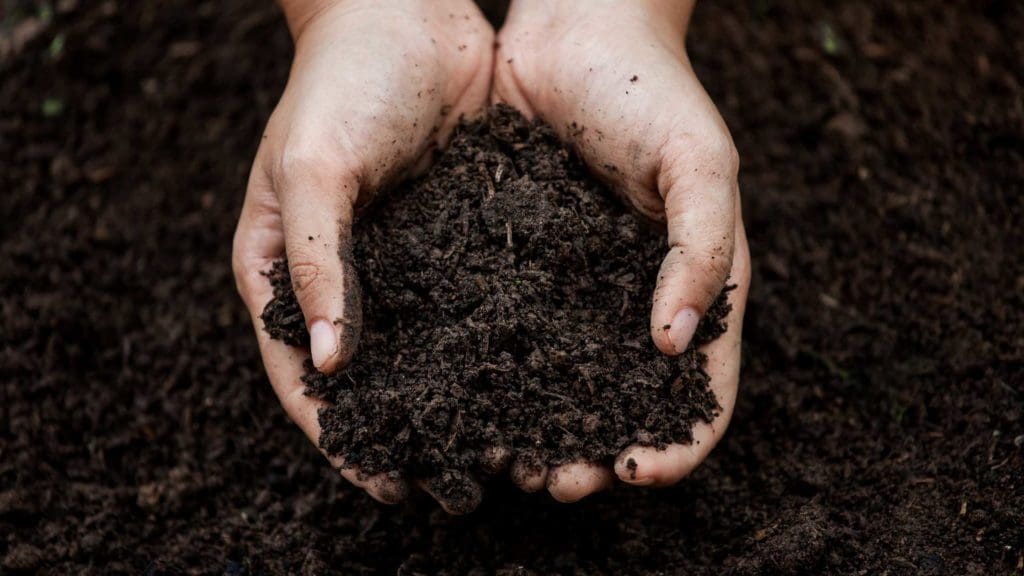Protecting your foundation from different external factors that could lead to soil movement and differential settlement is key to preventing major structural damage throughout your home. If you wonder how you can prevent potential foundation damage, specialists indicate a few measures that could be easily implemented. For instance, watering your foundation during a prolonged drought, keeping your gutters and downspouts clean, ensuring you have an efficient drainage system that prevents water from pooling around your home, installing root barriers, and inspecting the perimeter of your home on a regular basis so you can catch foundation issues early are just a few things you can do to avoid foundation problems.
However, one more thing overlooked by many homeowners and specialists alike is that keeping soil healthy can prevent a wide range of foundation issues, particularly in areas with expansive clay soils, like Houston and its surrounding cities.
Most people believe that soil health is important only when growing plants. But in reality, soil health often plays a significant role in keeping your foundation and home in tip-top shape throughout the years. Read on to find out how healthy soil can reduce the likelihood of foundation failure.
Healthy Soil Prevents Foundation Problems Caused by Erosion
Soil erosion is a gradual process through which the upper layer of the soil is displaced by the activity of specific erosive agents, such as wind, rainfall, and snowmelt. When soil erosion occurs near a home, the soil around and underneath the foundation is broken down into smaller pieces. As soil particles are loosened and carried away by wind and water runoff, the ground may start drawing away from the foundation. The foundation may move and shift because the home could remain without adequate support in some areas. This could cause differential settlement over time. Water might also start pooling by the foundation, accelerating the soil erosion process and increasing the risk of water damage and foundation settlement. All these could have a negative ripple effect throughout a home, potentially affecting its structural integrity.
On the other hand, healthy soil contains more organic matter and living organisms, which are known to form more stable aggregates that can significantly improve the soil structure. Soils that have a better structure are able to absorb and hold more water for longer periods of time compared to unhealthy soils with a poor structure. The excess water stored in healthy soils comes in handy, particularly during dry spells, when it can prevent the ground from drying out, degrading, and becoming unstable. A soil stability test performed by the Natural Resources Conservation Service clearly shows the differences between healthy and unhealthy, degraded soils.
Because healthy soils, which have a much lower erosion rate than unhealthy soils, promote aggregate stability, they’re able to better resist disruption when outside forces are applied. In other words, keeping the soil around your home health can help you prevent foundation damage due to the tensile, compressive, and/or bending stresses that are typically associated with soil movement.
Suppose you’ve observed any signs of soil erosion around your foundation. In that case, you can stop and even reverse this phenomenon by correcting landscape grading, installing adequate gutters and downspouts, opting for a surface or French drain, and planting different plant species, shrubs, and trees. All these measures can also be taken to eliminate or at least reduce the risk of soil erosion on your property.
Healthy Soil Prevents Foundation Problems due to Expansion
One of the easiest ways to prevent foundation problems during dry spells is to water your foundation regularly. Remember, however, that unhealthy soil isn’t able to handle water in the same way healthy soil does. Even if you adjust your watering routine to ensure constant moisture content in the ground around your foundation, unhealthy soil doesn’t have the same water-holding capacity as healthy soil. This may prevent water from being evenly absorbed by the ground around your home. Because the soil in the areas that receive more water may expand and settle at different rates than the soil in the other areas, a variety of foundation problems could occur.
The water-holding capacity of healthy soil comes in handy not only during dry spells but also during extreme rainfall. Unlike unhealthy soil, healthy soil allows more water to infiltrate, which means it can effectively absorb large quantities of rainwater. As a result, healthy soil could prevent foundation damage that may occur due to heavy rain as well.
If you live in Houston or surrounding areas, keeping your soil healthy is just as important as implementing any other measures that can help you reduce the likelihood of foundation damage from expansive clay soils. If you’ve noticed signs of settlement or suspect that your foundation or home has suffered some damage, feel free to call us at (281) 584-6943 in order to schedule a free foundation inspection, which will determine what the underlying cause is and what needs to be done to correct it!

